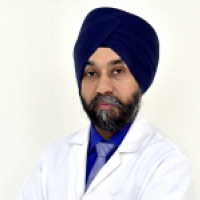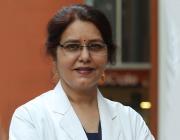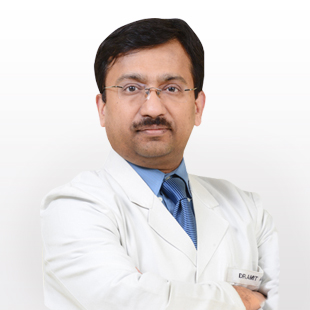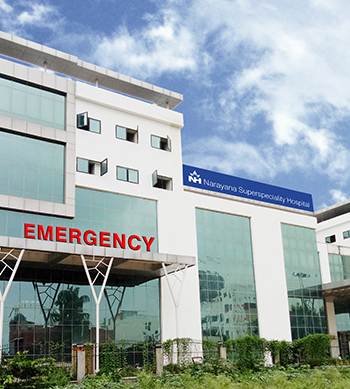About The Doctor
Dr. Randeep Singh has completed his training in the management of cancer patients at the prestigious Tata Memorial Hospital (TMH), Mumbai. He did his DM (Medical Oncology) and then worked as a consultant at TMH, Mumbai with the solid tumor-working group before joining Max group of hospitals. He worked with Max Healthcare for five years. Thereafter he was heading the department of Medical Oncology at HCG cancer center, Delhi. He has vast experience in managing solid and hemato-lymphoid tumors with special interest in breast, lung and gastrointestinal cancers. Dr. Singh has more than 40 publications in national and international journals of high impact factor. He has also attended and presented various scientific papers in national and international journals. His last organization was ARTEMIS hospitals where he worked as Sr. Consultant and Unit head for two and half years before joining NARAYANA Group.
Specialization
- Chemotherapy: Intravenous/ Intrathecal / Intraperitoneal
- Target therapy
- Immunotherapy
- Precision Oncology
Awards
- 2014 by Indian cooperative oncology network for 2nd in Geriatric oncology case presentation
- 2011 by Mumbai Hematology Group for 2nd in hematology quiz at national level.
- 2006 by National Neonatology Forum for 1st in neonatology quiz at state level.
- 2006 by Indian Academy pediatrics for 1st in post graduate quiz at state level.
- 2006 by Indian Academy pediatrics for 2nd in paper presentation at state level.
- 2000 distinction awarded in biochemistry, surgery and ophthalmology by BVDU, Pune in MBBS.
Frequently Asked Questions About Oncology
How many kinds of tumours are there?
There are two kinds of tumour – Malignant & Benign. A benign tumour is more common, and is generally harmless. It doesn’t spread to other parts of body. A malignant tumour on the other hand, never stops growing unless until treated and can spread to other parts of the body. cancer is the name given to a malignant growth.
Is cancer contagious or infectious?
No. Since cancer is not caused by a germ, it is not “catching”, and cannot be transmitted from one person to another.
How does Cancer spread?
A malignant tumor is made up of cancer cells. When it first develops, this malignant tumor may be confined to its original site. This is known as a cancer in situ (or carcinoma in situ). If these cells are not treated, they may spread beyond their normal boundaries and into surrounding tissues, becoming invasive cancer. Some benign tumors are precancerous and may progress to cancer if left untreated. Other benign tumors do not develop into cancer. For a cancer to grow bigger than the head of a pin, it must grow its own blood vessels. This is called angiogenesis. Sometimes cells move away from the original (primary) cancer, either by the local tissue fluid channels (lymphatics) or in the blood stream, and invade other organs. When these cells reach a new site, they may continue to grow and form another tumor at that site. This is called a secondary cancer or metastasis.
What are the warning signs of Cancer?
The chances of curing cancer increase with early detection. The Indian Cancer Society and other organizations recommend paying attention to seven warning signs of cancer:
– Changes in bowel or bladder habits
– Unusual bleeding or discharge
– A sore that does not heal
– Indigestion of difficulty swallowing
– A nagging cough or hoarseness
– A thickening or lump in the breast or elsewhere
– An obvious change in wart or mole
A physician can detect cancer by taking medical history, performing routine check ups, cancer screening tests, imaging techniques and tissue biopsy.
What is Chemotherapy used for?
Chemotherapy is given for the following reasons:
– Shrink tumors
– Slow cancer’s growth
– Keep the cancer from spreading
– Relieve diseases related symptoms
– Prolong survival
Chemotherapy is used to treat many different types of cancer. The type, location, and stage of the cancer as well as your general health will largely determine if chemotherapy is appropriate and which agents ought to be used.
What are the benefits of taking treatment through MMT instead of directly from the doctor?
We provide services from top doctors across top hospitals to ensure that you get the best treatment.











